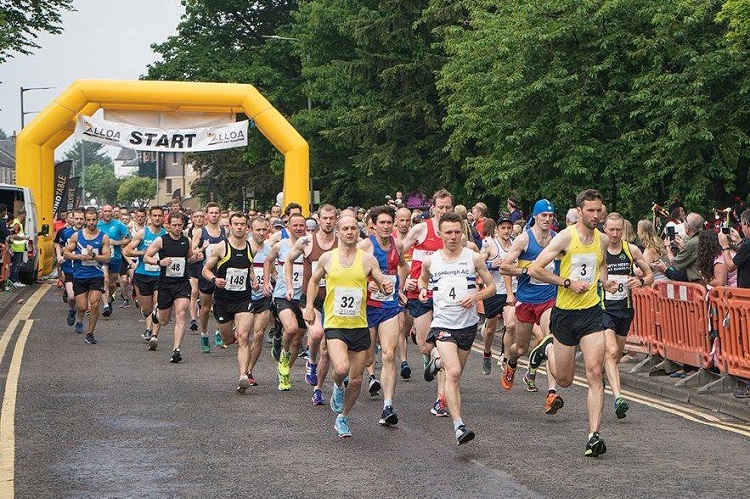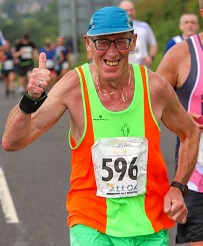Older runners have the knowledge
 Age and experience are the key factors in predicting running success, new research at the University of St Andrews has found.
Age and experience are the key factors in predicting running success, new research at the University of St Andrews has found.
Membership of a running club, as well as having run the same race several times, were also strong indicators of whether someone would be able to accurately predict their finishing time – giving older runners the advantage over their youthful counterparts.
Dr Akira O’Connor of the School of Psychology and Neuroscience at the University of St Andrews studied data over six years from Alloa Half Marathon, run annually in Spring in Clackmannanshire, Scotland.
 He found when comparing the predicted times, given when entrants signed up for the race, to their actual finish times, the older the runner, the more accurate their prediction was likely to be.
He found when comparing the predicted times, given when entrants signed up for the race, to their actual finish times, the older the runner, the more accurate their prediction was likely to be.
The most accurate age group was 46 years old and above with 65 per cent accurately predicting their finishing time, followed by the 31 to 45-year-old age group at 61 per cent, with the 16 to 30-year-old age group being the worst with just 56 per cent correctly guessing their finishing time.
The research published in the journal PLOS ONE also found that those who declared membership of a running club, such as a Jog Scotland group or an athletics club, were significantly better at gauging their performance beforehand with 68 per cent accuracy compared to 56 per cent. In addition, those who had run the race several times before became more accurate with each race – with 66 per cent accuracy in their first race, rising to 72 per cent by their third attempt at the event.
Another key finding was that women were slightly less likely to accurately predict their running times than men (58 per cent v 63 per cent). A surprising finding as women tend to be less overly-ambitious than men, making more accurate predictions over a range of other tasks.
Dr O’Connor said: “The clearest findings are that taking a leap and training with other people, to the point that you are prepared to list them as your club or running group, is associated with having a better idea of what your half marathon finish time will be.
“In addition, it was clear that more experienced runners are better at predicting performance. Practice improves both athletic performance (borne out in other data in the paper) and a runner’s awareness of their likely performance.”
However, the disparity between predictions made by male and female runners is less clear.
Dr O’Connor added: “Perhaps women are answering the question differently to men. They might be setting goals compared to giving realistic estimates, or perhaps they experience more problems during the race.”
Ultimately, the research concludes that setting unrealistic goals and failing to achieve them can be discouraging. It can distort a runner’s view of the achievement of finishing a half marathon to the disappointment of not completing the race within a particular time.
Dr O’Connor added: “We can overcome this potential for disappointment by setting more realistic goals with practice or, potentially, by interacting with people who have more experience. Athletics clubs and Jog Scotland groups are great ways of both setting running goals and training for them.”
The study examined the information submitted by 7211 runners when they signed up for the Alloa Half Marathon in years 2009 and 2011-15.
The paper, 'How accurate are runners’ prospective predictions of their race times?', by Konstantinos Liverakos, Kate McIntosh, Christopher J A Moulin and Akira R O’Connor, is published in PLOS ONE.
Image of runner number 596 courtesy of © Jon Comrie
Issued by the University of St Andrews Communications Office.